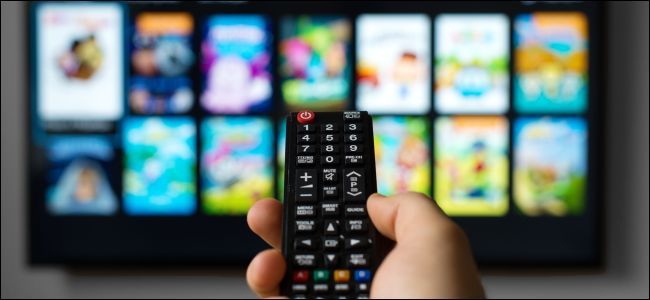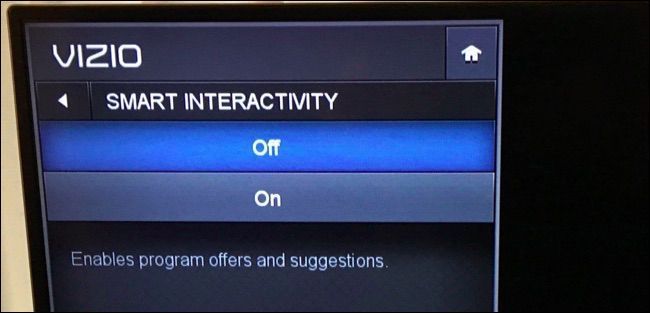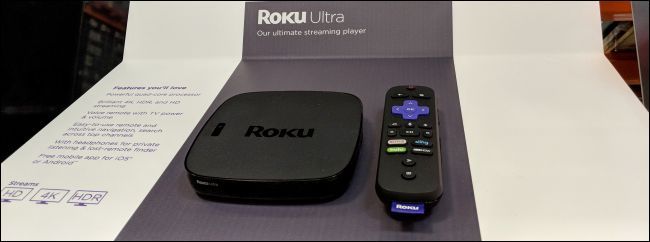Quick Links
Geeks often ask for dumb TVs. But, as the CTO of Vizio recently explained, smart TVs are cheaper than dumb TVs. TVs are so cheap that manufacturers make their profit by tracking your viewing habits and selling ads.
Why Smart TVs Are Cheaper Than Dumb TVs
You'd think a dumb TV would be cheaper than a smart TV. After all, a dumb TV wouldn't need the processing power and specialized software found on a smart TV. It could just act as a panel (like a computer monitor) and let you hook up devices via HDMI.
So why is every TV becoming a smart TV?
The Verge talked to Vizio CTO Bill Baxer at CES 2019. He spilled the beans:
So look, it’s not just about data collection. It’s about post-purchase monetization of the TV.
This is a cutthroat industry. It’s a 6-percent margin industry, right? I mean, you know it’s pretty ruthless. You could say it’s self-inflicted, or you could say there’s a greater strategy going on here, and there is. The greater strategy is I really don’t need to make money off of the TV. I need to cover my cost.
This isn't all bad. He goes on to explain that Vizio is investing in its old TVs and updating them with new software. For example, Vizio TVs going back to 2016 will be receiving AirPlay support. And advertising is just one part of the business model, which also includes money from movie and TV show rentals initiated from the TV.
Automatic Content Recognition Tracks What You Watch
If you never use your smart TV's software, you might think it isn't tracking you. You use a set-top box or streaming stick like a Roku, Apple TV, Fire TV, Chromecast, Android TV, PlayStation 4, or Xbox One. So your smart TV's built-in software can't track you---right?
Wrong. Modern smart TVs use a technique called "automatic content recognition," or ACR. When you watch something on any device plugged into the TV---yes, even if you have a device plugged in via HDMI---the TV captures some pixels from whatever you're watching and uploads them to the TV manufacturer's servers. The servers can match that to a movie or TV show. The TV manufacturer now knows what you're watching, and it can sell that data to marketers and advertisers.
This works with any device plugged into the TV, whether you're watching cable TV, OTA channels with an antenna, or digital streams on Netflix via a streaming box.
For example, advertisers can purchase this data to get a better idea of how many people are watching their advertisements. This data can be linked to your IP address, so an advertiser may know if you saw an advertisement on TV and then purchased the product in the ad on your computer or phone.
Smart TVs Do Warn You, Kind Of
Smart TVs do warn you and ask permission, in general. They may ask to track your TV watching to provide better recommendations or something vague like that. You can generally disable the tracking if you want to. But it can be confusing.
For example, to disable this stuff on my Vizio TV, I had to turn off "Smart Interactivity." That's an awfully misleading name and doesn't sound like a feature that will track my TV viewing habits; instead, it sounds like something you'd want.
Vizio may pay up to $17 million to settle a lawsuit accusing it of tracking the viewing habits of Vizio TV owners without proper disclosure. Modern smart TVs will generally ask you whether you want to enable this when you set it up, although most users will quickly click through these messages and permit them.
It's also worth noting that this only works if the TV is connected to the Internet via Wi-Fi or Ethernet. If you never connect your smart TV to the Internet, it won't be able to upload this data---but some TV features won't work, and it won't get updates with new features like AirPlay, either.
What About Crapware?
This is the same sort of business model found in inexpensive Windows laptops and Android phones. The race to the bottom has made the hardware so cheap that manufacturers have to make money in another way rather than just on the purchase.
For PCs, it's "crapware," which is additional software that comes preinstalled on the PC. PC manufacturers are paid to install this junk. Crapware includes free trials for antivirus products that nag you to pay up so that something bad doesn't happen to your PC.
Modern smart TV manufacturers gather data about what you watch, sell ads, and earn a cut when you rent digital movies and TV shows.
Of course, those aren't the only revenue streams. Smart TV manufacturers may be paid to preinstall TV service apps and put them up front and center. Some TVs remotes have dedicated buttons for Netflix and other services---those services have generally paid money to get on that remote, too.
Even Many Streaming Boxes Are Similar
Think you're safe because you've disconnected your TV from the Internet and use a streaming box? Think again.
Roku has a similar business model, and it also accepts money from streaming services to place dedicated, physical buttons for services like Netflix and Hulu on its remotes. There are even Roku remotes out there with dedicated buttons for media services like Rdio, which no longer exist.
That Roku streaming box you purchased has advertising, too. As Roku CEO Anthony Wood told The Verge in 2018, Roku makes money from advertising and video content, not hardware sales:
We certainly don’t make enough money to support our engineering organization and our operations and the cost of money to run the Roku service. That’s not paid for by the hardware. That’s paid for by our ad and content business.
And yes, unless you disable this feature, Roku also tracks what you watch and uses the data to sell ads.
TVs Are a Conduit For Tracking, Advertising, and Media Sales
That's why it's so difficult to buy a dumb TV. Manufacturers get enough money up front to cover the cost of the TV, but they aren't making much profit from selling that hardware. They make money from tracking your TV viewing habits, selling advertisements, and earning a commission off digital media purchases and rentals you make on the TV.
If you opt out of tracking and never use any of the media apps on the TV itself, that's fine. They make enough money from other people that they can afford not to make any additional money from people like you. It's all built into their revenue model.
It's hard to complain, too. People love cheap TVs, and it's clear most people don't want to pay extra for TVs without built-in tracking features. After all, you can always disable the tracking anyway---if you know what you're doing.



